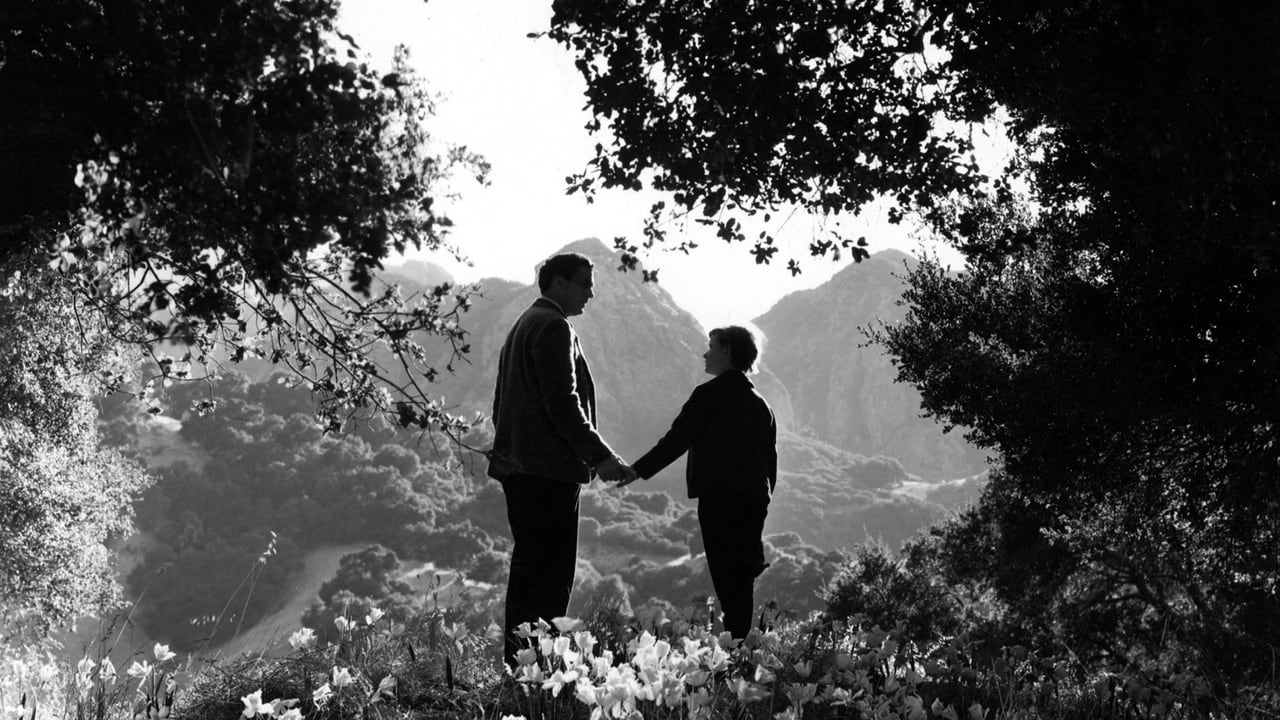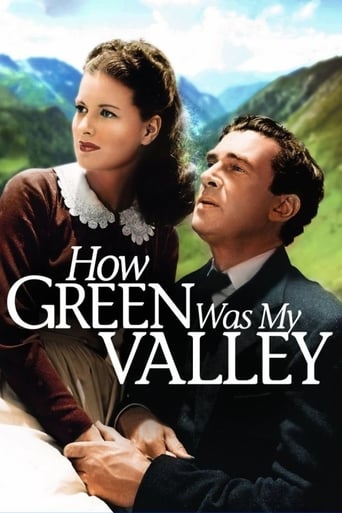



Slow pace in the most part of the movie.
Absolutely Fantastic
Instead, you get a movie that's enjoyable enough, but leaves you feeling like it could have been much, much more.
View MoreOne of the best movies of the year! Incredible from the beginning to the end.
View MoreI finally watched this film after hearing about it for many years. John Ford was well respected for "The Searchers", "The Man Who Shot Liberty Valance", and "The Grapes of Wrath" and several others. The black and white imagery is breathtaking, filled with shadows, reminding me of "Citizen Kane" by Orson Welles. Roddy Mcdowall is the narrator as an adult and he tells the story of his close knit Welsh family of his mother, father, and three brothers and sister. The men all work in the local coal mine and his sister, played by Maureen O'Hara, helps around the house. As happened here in America, the workers banded together to form a union in order to gain fair wages and work conditions. Along the way, there are love affairs and heart break involving the boys' sister and a local well meaning minister of the local church. Ford keeps it all moving as a compelling tale of family love and loyalty. A wise choice for best picture at the Academy Awards for 1941.
View MoreI think that the director Ford approached too biased themes in this movie. HOW GREEN WAS MY VALLEY shows the fifty range of reputable and hardworking Welsh family, which deals with mining of coal. The main theme of the socio-economic transience and decay of the family. The main protagonist of the memories tells us about his family, mine, which means life, culture and traditions of his valley. The atmosphere is uniform and gloomy. Every little joy threatens a tragedy. The story is raw. The cinematography is top notch. A small mining town looks impressive. Almost the entire film in retrospect, through the eyes of the main protagonists of the little boy, who in his sad childhood finds unquestionable virtues related to family, work ethic and love among people. Extremely impressive black-and-white photo of the scene of heavy mining life throws lyrical, impressionistic tone, references to Christian suffering mainly expressed through suggestive faces of the protagonists, and very artfully staged mass scenes departures miners to work and arrivals from work. The acting is pretty good. The team led by deeply sensitive and shy boy Huw Morgan (Roddy McDowall). Authoritative and capable father Gwilym Morgan (Donald Crisp). Simple, fair and amorous priest Mr. Gruffydd (Walter Pidgeon). The mother Beth Morgan (Sara Algood), as a reason and pillar of the family. Unlucky in love with the beautiful daughter Angharad Morgan (Maureen O'Hara). Loyal Bronwyn (Anna Lee) daughter in law.I managed to scratch the surface and meet the virtuous and industrious miners who together with his city, culture and traditions disappear in time
View MoreAt the turn of the century in a Welsh mining village, the Morgans (he stern, she gentle) raise coal-mining sons and hope their youngest will find a better life.William Wyler, the original director, saw the screen test of McDowall and chose him for the part. Wyler was then replaced by John Ford, who thankfully kept McDowall. Fox wanted to shoot the movie in Wales in Technicolor, but events in Europe during World War II made this impossible. Instead, Ford built a replica of the mining town at the nearly 3,000-acre Fox Ranch in Malibu Canyon. Can you tell the difference? Of course, the cast had only one Welsh actor: Rhys Williams, and he was only in a minor role.At the Academy Awards, the film won Best Picture, Best Director (John Ford), Best Actor (Donald Crisp) and Best Cinematography. Today we complain that the Best Picture did not go to "Citizen Kane". For me, the bigger insult is the Cinematography award. Gregg Toland is among the best who ever lived.
View MoreWhat stays with me is the singing. They sing on their way to work. They sing on the way home from work. They sing at weddings, funerals, church services. They sing during downtime, during happy occasions and during sad occasions. Their singing comes in the form of choral arrangements that doesn't come from formal practice but from their very souls. When they sing it comes from the echoes of the past, of the heritage passed down from their fathers. Their singing sweeps across the hills and becomes part of their daily breath.John Ford's adaptation of Richard Llewellyn's book How Green Was My Valley is a movie about the hardships in a small 19th century mining town in Southern Wales, in which the people live in poverty and grief yet they sing all the time. Were it not from the singing this might be just another good-looking memoir, so the singing gives it texture.The movie is a memoir told from the point of view of a man who is about to leave his native land. He tells us his story in flashbacks so that we understand where he came from and why he is eventually driven to vacate. This is a mining town, but it has become so industrialized and over-populated that the place no longer resembles the land of his formative years. The story is told from the point of view of the young Huw (Roddy McDowell) as he watches the hardships within his own family. His proud father (Donald Crisp) and his mother (Sara Allgood) struggle against generational differences to hold their family together. Among the siblings are Ivor (Patric Knowles), Huw's older brother, and Angharad (Maureen O'Hara) his older sister. There is also Bronwyn, Ivor's wife whom Huw harbors a serious crush. And there's Mr. Gruffydd (Walter Pidgeon) a good-hearted minister who marries Huw's sister.The problems within the family have to do with the children's restlessness, and their desire to escape the generational heritage to find their own way in the world. The first cracks begin to form when the mine worker's pay is cut and they go on strike. The boys in the mine want a strike, but Mr. Morgan is supports the mining company and, for a short time, becomes the town pariah. This is the beginning of their problems and won't end until the Morgan children are scattered across the globe.The heritage given to the children of this town is to work in the coal mines. Everyone has their problems, whether they be marital strife, accusations by the church or simply a matter of personal difficulties that turn into life-long grievances. This is not a happy story to say the least. Even little Huw has his problems at school where an egotistical teacher makes him humiliates him in front of the class because of his low social standing.The narrative given in How Green Was My Valley feels more like pieces and short stories rather than one continuous thread. It looks and feels like pieces of memory and that would be fine if we felt any real connection with the characters. We can't help but feel for them, but while we understand their circumstances, the characters remain sort of unknown to us. We feel the texture of their location and their heritage, but the individuals are missing. There are things in the movie that work. John Ford creates a sense of time and place and of memories. We feel that these are events that are being looked back on, but something in the intimate detail is simply not there. We reach for the emotional pull but our hands grasp at empty air.Possibly for that reason, the film's historical legacy is not so great. Despite being acclaimed at the time, earning ten Oscar nominations and taking home the prize for Best Picture, How Green Was My Valley has more or less faded into obscurity. It is rarely screened on television except in the occasional annual Oscar marathon and even then only rarely does it show up. That could be because the film doesn't really reach out to the viewer. The involvement factor remains somewhat at arms-length. Well-made as it is, the movie feels like homework. It is not the first John Ford movie that you reach for or even the second or third or fourth. This is a film with just as many things that work as things that don't. There are elements that stay with me, but as a whole, it doesn't.
View More